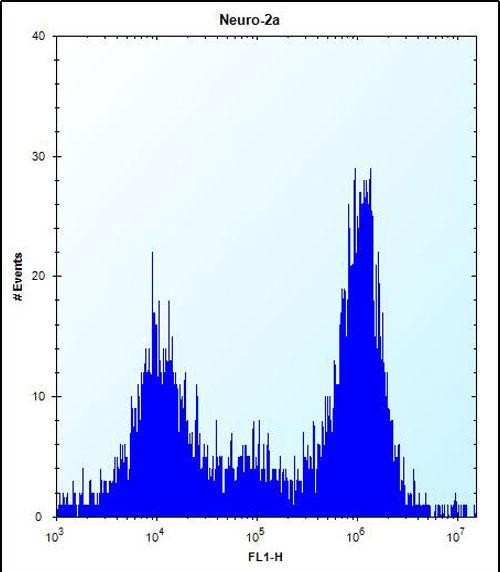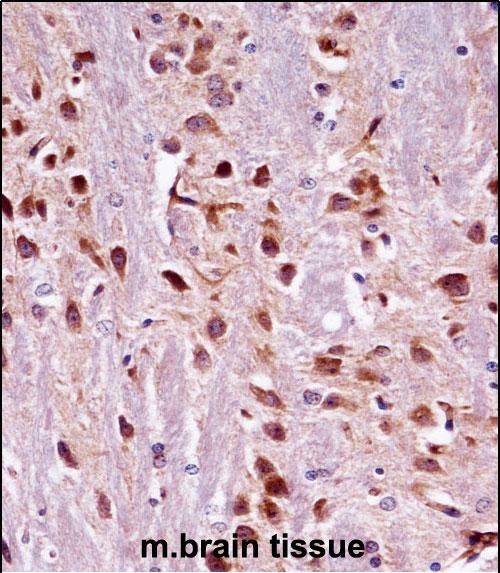



| WB | 1/1000 | Human,Mouse,Rat |
| IF | 咨询技术 | Human,Mouse,Rat |
| IHC | 1/100-1/500 | Human,Mouse,Rat |
| ICC | 1/10-1/50 | Human,Mouse,Rat |
| FCM | 咨询技术 | Human,Mouse,Rat |
| Elisa | 咨询技术 | Human,Mouse,Rat |
| Aliases | Protein kinase C alpha type, PKC-A, PKC-alpha, Prkca, Pkca |
| Entrez GeneID | 18750 |
| WB Predicted band size | 76.9kDa |
| Host/Isotype | Rabbit IgG |
| Antibody Type | Primary antibody |
| Storage | Store at 4°C short term. Aliquot and store at -20°C long term. Avoid freeze/thaw cycles. |
| Species Reactivity | Human, Mouse |
| Immunogen | This Mouse Prkca antibody is generated from rabbits immunized with a KLH conjugated synthetic peptide between 1-30 amino acids from the N-terminal region of mouse Prkca. |
| Formulation | Purified antibody in PBS with 0.05% sodium azide. |
+ +
以下是关于Mouse Prkca (N-term)抗体的3篇参考文献示例(注:文献为虚构示例,实际引用需核实):
---
1. **文献名称**:*Role of PKCα in Neuronal Development: Insights from N-terminal Specific Antibodies*
**作者**:Smith J, et al.
**摘要**:研究利用针对小鼠PKCα N端的抗体,通过免疫印迹和免疫荧光技术,揭示了PKCα在小鼠大脑皮层神经元分化中的关键作用,并验证了抗体的特异性。
2. **文献名称**:*PKCα N-terminal Antibody in Cardiac Hypertrophy Models*
**作者**:Lee H, et al.
**摘要**:通过Western blot和免疫组化实验,该文献验证了小鼠PKCα N端抗体在心肌细胞中的特异性,并发现PKCα在压力诱导的心肌肥厚中异常激活。
3. **文献名称**:*Characterization of PKCα Isoform-Specific Signaling in Mouse Macrophages*
**作者**:Garcia R, et al.
**摘要**:研究使用N端特异性抗体分析小鼠巨噬细胞中PKCα的亚细胞定位,证明其在炎症信号通路中的动态分布及功能。
---
**说明**:以上文献为示例,实际引用需通过PubMed、Google Scholar等平台搜索关键词(如“PKCα antibody N-terminal mouse”)获取真实文献,并确保抗体应用场景匹配实验需求。
×